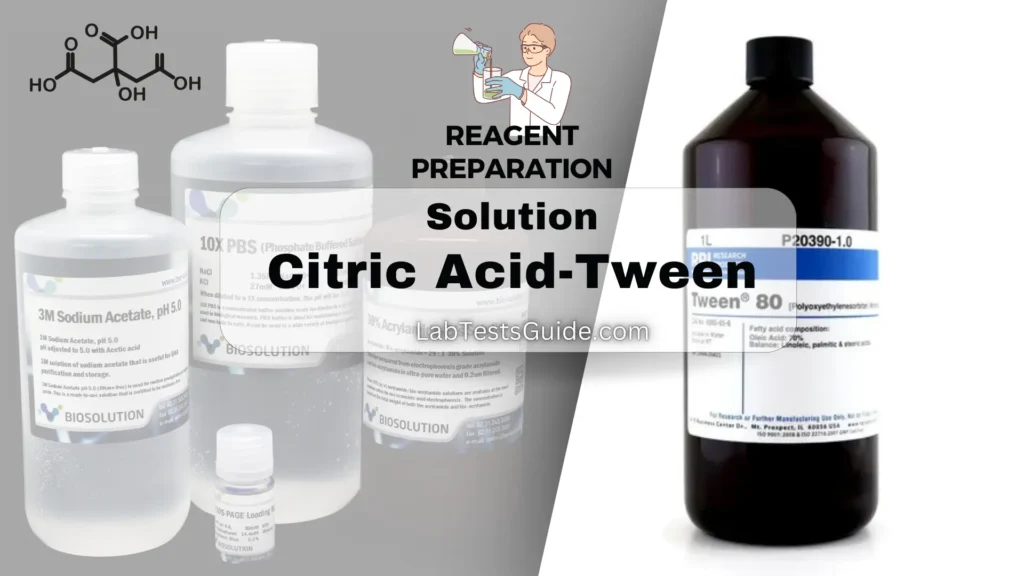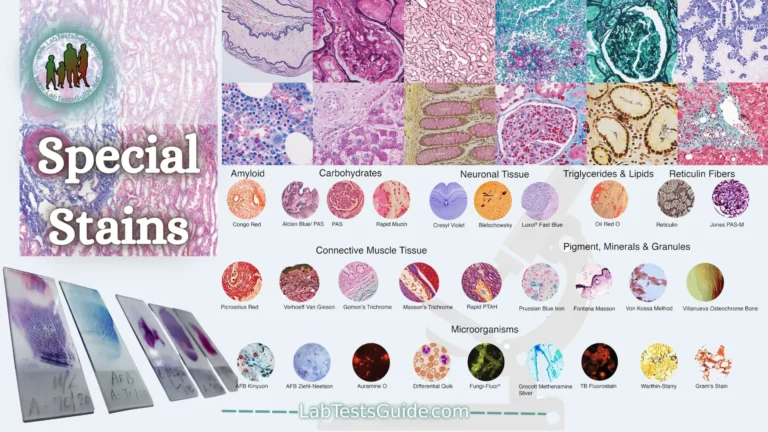Citric Acid-Tween Solution is a specialized reagent used in various laboratory procedures, particularly in immunohistochemistry (IHC) and other staining techniques. This solution is often used for antigen retrieval, which helps unmask epitopes on formalin-fixed, paraffin-embedded tissue sections, making them more accessible for antibody binding.

Uses of Citric Acid-Tween Solution:
- Antigen Retrieval: Enhances epitope exposure in tissue sections for immunohistochemistry (IHC) staining.
- Buffering Agent: Maintains pH stability during staining procedures, ensuring consistent results.
- Washing Solution: Reduces background staining by minimizing nonspecific binding of antibodies.
- Tissue Preparation: Used in preparing tissue samples for staining, improving antibody binding efficiency.
- Deparaffinization Aid: Assists in the removal of paraffin from tissue sections during staining protocols.
- Stain Enhancement: Improves the intensity and clarity of specific stains in histological procedures.
- Protein Unmasking: Helps to reveal hidden protein sites on formalin-fixed tissues, facilitating better detection by antibodies.
Composition of Citric Acid-Tween Solution:
| Component | Amount | Purpose |
|---|---|---|
| Citric Acid | 12.91 g | Buffering agent to maintain acidic pH |
| di-Sodium hydrogen phosphate, hydrated (Na₂HPO₄·12H₂O) | 27.61 g | Buffering agent to maintain pH |
| Tween 80 | 50 ml | Surfactant to reduce surface tension |
| Merthiolate | 0.1 g | Preservative to prevent microbial growth |
| Distilled water | 1 litre | Solvent to dissolve all components |
Preparation of Citric Acid-Tween Solution:
- Weigh the Chemicals:
- Weigh 12.91 g of citric acid.
- Weigh 27.61 g of di-sodium hydrogen phosphate (Na₂HPO₄·12H₂O).
- Transfer both to a 1-liter volumetric flask.
- Dissolve in Water:
- Half-fill the flask with warm distilled water.
- Mix until the chemicals are completely dissolved.
- Add Tween 80:
- Add 50 ml of Tween 80 to the flask.
- Fill the flask up to the 1-liter mark with distilled water.
- Add Merthiolate:
- Transfer the solution to a leak-proof bottle.
- Add 0.1 g of merthiolate (preservative).
- Mix gently but thoroughly.
- Label and Store:
- Label the bottle with the preparation date and contents.
- Store at room temperature. The solution is stable for several months.
Precautions for Preparing Citric Acid-Tween Solution:
- Use PPE: Wear gloves, goggles, and a lab coat to protect against chemical exposure.
- Handle Chemicals Carefully: Avoid inhalation and direct contact with citric acid and merthiolate.
- Use Warm Water Cautiously: Ensure the water is warm, not hot, to prevent splashing and scalding.
- Mix Gently: Avoid vigorous shaking to prevent foam formation, especially after adding Tween 80.
- Label Clearly: Properly label the solution with the contents and preparation date to avoid misuse.
- Store Properly: Keep the solution in a well-sealed, leak-proof bottle at room temperature, away from direct sunlight and heat sources.
- Dispose of Waste Properly: Follow your lab’s protocols for disposing of chemical waste.
Uses of Citric Acid-Tween Solution in Clinical Laboratories:
- Antigen Retrieval: Enhances epitope exposure on tissue sections for more effective immunohistochemistry (IHC) staining.
- Buffering Agent: Maintains pH stability during various staining procedures, ensuring consistent results.
- Reducing Background Staining: Helps minimize nonspecific binding of antibodies, leading to clearer and more accurate staining.
- Tissue Preparation: Assists in the preparation of tissue samples for staining, improving antibody binding efficiency.
- Deparaffinization: Aids in removing paraffin from tissue sections, crucial for preparing slides in histology.
- Stain Enhancement: Increases the intensity and clarity of specific stains, improving diagnostic accuracy.
- Protein Unmasking: Facilitates the unmasking of hidden protein sites in formalin-fixed tissues, allowing better antibody detection.






